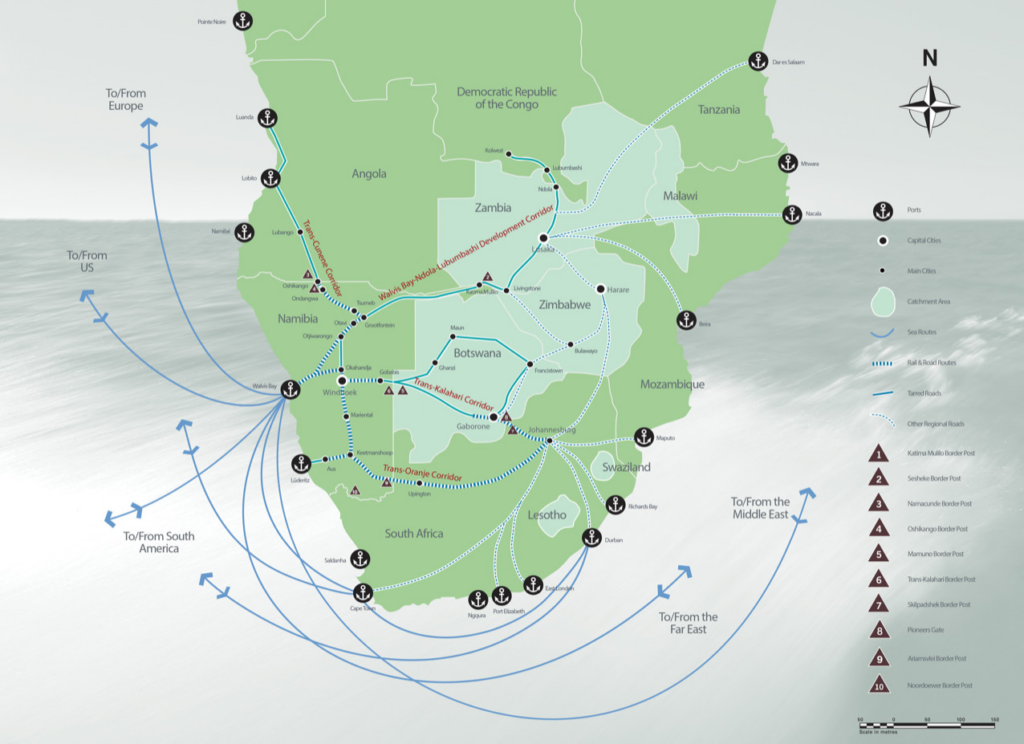OMAKE MOMENT with the Namibia Trade Network

Have you ever wondered how all the products end up on the store shelves we visit? It’s a bit like raising a child – it takes community effort. Similarly, moving goods to and from Namibia involves multiple communities and leaders working together to manage the transportation routes across the country.
Let’s take a moment to appreciate the Walvis Bay Corridor Group (WBCG). Since its inception in 2000, the WBCG has woven a tale of ambition and achievement, establishing itself as one the best corridor management institutions in Africa. With a strategic plan as their compass, the WBCG charts a course towards greater heights. Its mission is clear: to increase cargo volumes traversing the ports of Walvis Bay and Lüderitz, while simultaneously enhancing the competitiveness of the corridors that connect them to the region’s hinterlands.
Across the well-maintained roads and rail networks, the WBCG actively promotes the Walvis Bay Corridors, consisting of the Trans-Kalahari Corridor, Walvis Bay-Ndola-Lubumbashi Development Corridor, Trans-Cunene Corridor and the Trans-Oranje Corridor. These corridors serve as essential arteries for trade providing invaluable pathways to reduce the cost of doing business for neighbouring landlocked countries. Through their connectivity to transatlantic markets, they play a crucial role in facilitating economic growth and development in the region.
Such is the WBCG’s reputation for excellence in corridor management that the Government of the Republic of Namibia, bestowed upon them an important mandate of implementing Namibia’s ambitious vision to become the Logistics Hub for the SADC region.
Furthermore, the WBCG through its Wellness Services, extends a caring hand to the transport and logistics industry, offering comprehensive health and wellness services to the industry and vulnerable communities along the Walvis Bay Corridors.
At the heart of the WBCG’s success lies its unique approach to Public-Private Partnerships (PPP). From government agencies to private institutions, stakeholders unite under the banner of progress, pooling their resources and expertise to propel the region forward, as well as create a seamless transport and logistics network.
Through its branch offices in Lusaka, Zambia; Johannesburg, South Africa, and Lubumbashi, Democratic Republic of Congo, the WBCG serves as a nexus of connectivity, linking nations and unlocking opportunities for collaboration as well as economic growth within the SADC region.
The WBCG plays a pivotal role in facilitating trade and transportation, ensuring that products reach their destinations safely and efficiently. Let’s salute the WBCG for their contributions to regional development and economic growth.







